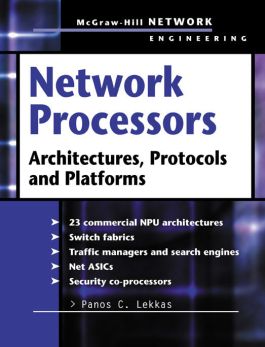Network Processors
Step 1. Download Adobe Digital Editions Both PC and Mac users will need to download Adobe Digital Editions to access their eBook. You can download Adobe Digital Editions at Adobe's website here.
Step 2. Register an Adobe ID if you do not already have one. (This step is optional, but allows you to open the file on multiple devices) Visit account.Adobe.com to register your Adobe account.
Step 3: Authorize Adobe Digital Editions using your Adobe ID. In Adobe Digital Editions, go to the Help menu. Choose “Authorize Computer.”
Step 4: Open your file with Adobe Digital Editions. Once you’ve linked your Adobe Digital Editions with your Adobe ID, you should be able to access your eBook on any device which supports Adobe Digital Editions and is authorized with your ID. If your eBook does not open in Adobe Digital Editions upon download, please contact customer service
Network processing units (NPUs) will be the occasion of sweeping changes in the network hardware industry over the next few years. This new breed of microchip impacts chip designers like Intel, equipment vendors like Cisco, application developers like IBM and Morotola, and an army of software engineers who spent the last decade working on protocols and network management solutions. A thoroughly practical dissection of the early NPU market, this designer's guide explains how network processors work and provides detailed information on all major commercial architectures, from features to design considerations. Comparative tables are a rich source of cross-industry info. Coverage includes traffic managers, classification chips, content-addressable memories, switch fabrics, security accelerators, storage coprocessors and NetASICs.

